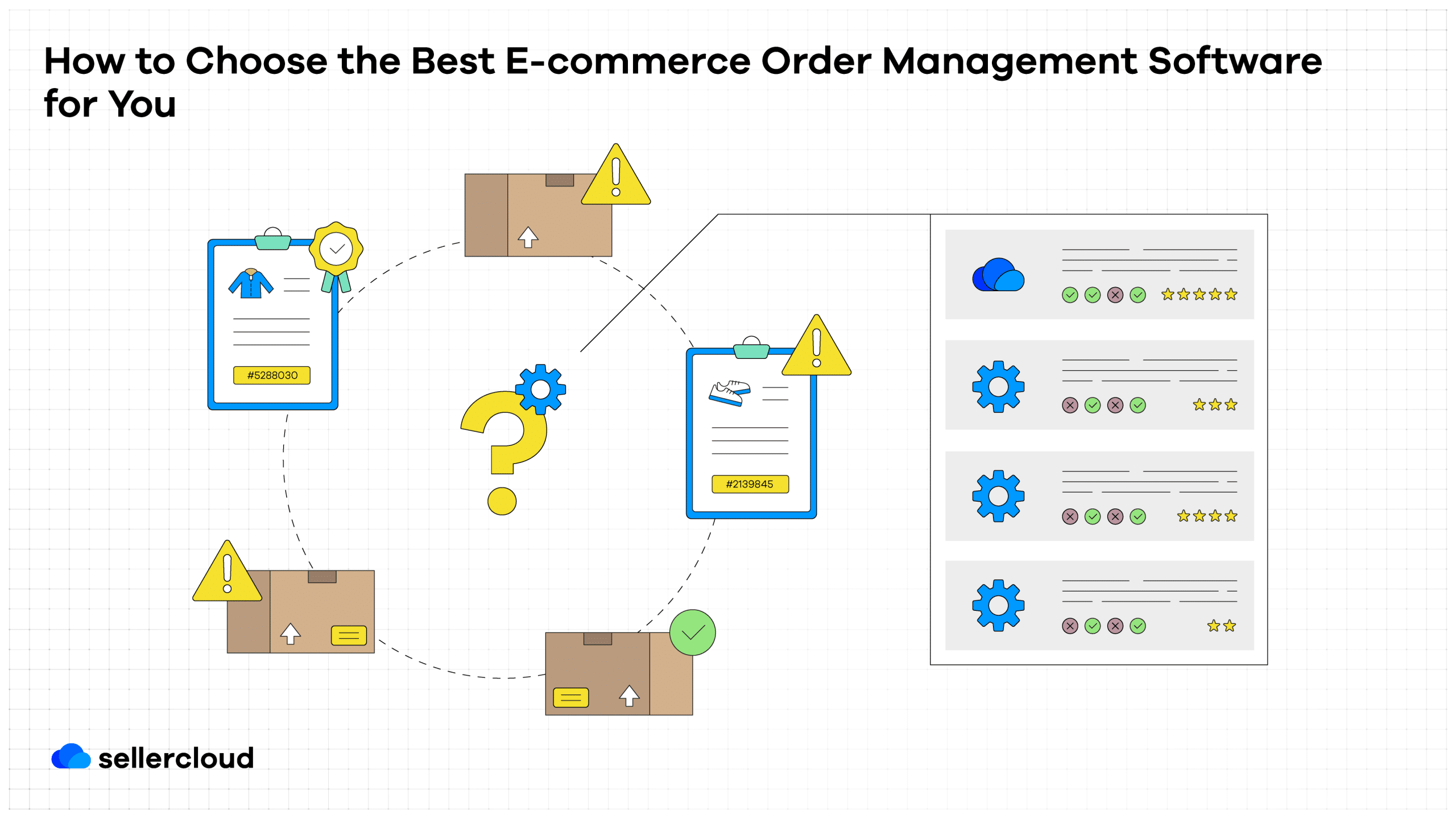Ecommerce management tools are essential for running a successful online store. They help streamline operations, boost sales, and improve customer experience.
In today’s fast-paced digital world, managing an ecommerce business can be challenging. From inventory management to customer support, the right tools can make all the difference. Whether you’re a small startup or a large enterprise, selecting the best ecommerce management tools can help you stay organized and efficient.
These tools can automate tasks, provide valuable insights, and save you time. By using them, you can focus more on growing your business and less on managing day-to-day operations. In this blog post, we will explore some of the top ecommerce management tools that can help you achieve your business goals.
Top Ecommerce Tools
Ecommerce management tools simplify online store operations. They help with inventory, orders, and customer service. Boost efficiency and enhance the user experience.
When running an ecommerce business, having the right tools can make a world of difference. From managing inventory to enhancing customer experience, ecommerce management tools are essential for success. Let’s dive into some of the top ecommerce tools available today.Key Features
Different ecommerce tools come with various features tailored to specific needs. Some key features to look for include:- Inventory Management: Tools like TradeGecko help track stock levels in real-time, preventing overselling and stockouts.
- Customer Relationship Management (CRM): Shopify and BigCommerce offer built-in CRM systems to manage customer data and interactions effectively.
- Order Fulfillment: Tools such as ShipStation streamline the order fulfillment process, from printing labels to tracking shipments.
- Analytics and Reporting: Google Analytics and Kissmetrics provide detailed insights into customer behavior, helping you make informed decisions.
User Reviews
User reviews provide invaluable insights into how these tools perform in real-world scenarios. Let’s look at some feedback:Shopify: Many users appreciate Shopify’s ease of use and powerful integrations. One user noted, “Setting up my online store was a breeze, and the customer support is fantastic.” However, some users mentioned that transaction fees can add up.
BigCommerce: Users frequently highlight BigCommerce’s flexibility and scalability. A user commented, “BigCommerce has been great for scaling my business. The built-in features are robust.” On the downside, some found the learning curve to be steep.
ShipStation: ShipStation is often praised for its efficiency in managing shipments. One user shared, “It saved me hours every week. I can’t imagine running my business without it.” But, there were occasional complaints about the user interface being outdated.
Reading user reviews can help you understand the pros and cons of each tool, guiding you to make the right choice for your business. Are there any ecommerce tools you swear by? Share your experiences and help others find the best tools for their needs!Inventory Management
Inventory management is crucial for any eCommerce business. It ensures you have the right products available at the right time without overstocking or understocking. Efficient inventory management can boost your business’s profitability and customer satisfaction.
To master inventory management, adopt practices that streamline your operations. First, maintain accurate records of your inventory levels. Regular audits can help prevent discrepancies. Second, categorize your products based on demand and seasonality. This approach helps in prioritizing stock replenishment.
Third, implement an automated system for real-time inventory tracking. Automation minimizes human error and keeps you updated on stock levels. Fourth, build strong relationships with reliable suppliers. They can provide quick restocks when your inventory runs low.
Several software solutions can simplify inventory management for your eCommerce business. One popular choice is Shopify. It offers inventory tracking, order management, and detailed reporting. You can easily manage your stock levels and avoid overselling.
TradeGecko is another excellent tool. It provides real-time inventory updates and integrates with multiple sales channels. This makes it easier to manage inventory across different platforms.
For more advanced needs, consider Netsuite. This software offers comprehensive inventory management features, including demand forecasting and supply chain management. It’s ideal for businesses looking to scale operations.
Are you using any inventory management software currently? If not, which of these tools would you consider for your business? Your choice can significantly impact your efficiency and customer satisfaction.
Order Processing Tools
Order processing tools are crucial for any ecommerce business. They help manage orders from start to finish. These tools streamline the process, saving time and reducing errors. Let’s explore some key benefits and popular platforms.
Automation Benefits
Order processing tools offer several automation benefits. They eliminate manual tasks, speeding up the entire process. Automation reduces human errors, ensuring accurate order fulfillment. These tools also update inventory in real-time. This prevents overselling and stockouts.
Automated order processing improves customer satisfaction. Fast and accurate shipping leads to happy customers. This can increase repeat purchases and customer loyalty.
Popular Platforms
Several platforms offer excellent order processing tools. Shopify is a popular choice. It provides robust features and integrates with many third-party apps. WooCommerce is another top platform. It is flexible and works well with WordPress sites.
BigCommerce is also widely used. It offers powerful tools for managing orders and inventory. Magento is another option. It is highly customizable and suitable for larger businesses. Each platform has unique features to meet different needs.

Credit: sellercloud.com
Customer Relationship Management
Customer Relationship Management (CRM) is crucial for ecommerce businesses. It helps manage interactions with current and potential customers. A good CRM tool can improve customer service, increase sales, and boost profitability. Let’s explore some CRM options and how they can improve customer engagement.
Crm Options
There are many CRM tools available. Some popular options include Salesforce, HubSpot, and Zoho CRM. These tools offer a range of features. They help manage customer data, track interactions, and automate tasks. This can save time and improve efficiency.
Salesforce is known for its powerful features. It offers robust analytics and customization options. HubSpot is user-friendly and integrates well with other tools. Zoho CRM is cost-effective and offers a wide range of features. Each tool has its strengths. Choose one that fits your business needs.
Improving Customer Engagement
A CRM tool can improve customer engagement. It helps track customer interactions across different channels. This ensures consistent and personalized communication. Customers feel valued when they receive timely and relevant information.
CRMs also provide valuable insights. You can see customer preferences and purchase history. This helps tailor marketing efforts. Automated emails and follow-ups keep customers engaged. They remind customers of their importance to your business.
By using a CRM, you can also identify and reward loyal customers. Offer exclusive deals and personalized recommendations. This fosters loyalty and encourages repeat business. A satisfied customer is likely to recommend your brand. This helps grow your customer base.
Marketing Tools
Effective marketing tools are essential for eCommerce success. They help attract and retain customers. These tools streamline your marketing efforts, saving time and boosting productivity. Here, we explore the best marketing tools for eCommerce management.
Seo Tools
SEO tools help improve your website’s visibility on search engines. They analyze your site’s performance and provide insights. Popular SEO tools include Google Analytics, SEMrush, and Ahrefs. These tools offer keyword research, backlink analysis, and site audits. They help you identify and fix SEO issues, improving your ranking. With better SEO, your store attracts more organic traffic. This leads to higher sales and growth.
Social Media Management
Social media management tools simplify handling multiple platforms. They allow you to schedule posts and track engagement. Tools like Buffer, Hootsuite, and Sprout Social are excellent choices. They provide insights into audience behavior and content performance. You can manage all your social media accounts from one place. This saves time and ensures consistent messaging. Effective social media management boosts brand awareness and customer loyalty.
Analytics Tools
Analytics tools are essential for any ecommerce business. They help track performance and gain insights into customer behavior. These tools provide data that can improve decision-making and strategy development.
Tracking Performance
Tracking performance is crucial to understand how your ecommerce store is doing. Analytics tools show metrics like traffic, conversion rates, and sales. These metrics help identify strengths and weaknesses. They also help measure the effectiveness of marketing campaigns.
Real-time data tracking helps you respond quickly to changes. You can see what products are selling well and which are not. This helps in making timely adjustments to inventory and pricing strategies. You can also monitor customer engagement and retention rates.
Data Insights
Data insights provide a deeper understanding of customer behavior. Analytics tools analyze data to show patterns and trends. These insights help in personalizing the shopping experience. You can tailor product recommendations and marketing messages.
Understanding customer preferences aids in improving product offerings. Analytics tools can also identify potential issues in the customer journey. This allows for improvements in website design and user experience. Data insights are key to staying competitive in the ecommerce market.
Payment Processing
Efficient payment processing is essential for ecommerce success. Top ecommerce management tools provide seamless, secure transactions, enhancing customer trust and satisfaction.
Payment processing is a vital component of any ecommerce business. It ensures that your customers can pay for their purchases seamlessly and securely. Whether you are a small business or a large corporation, the right payment processing tool can make all the difference in boosting your sales and building customer trust.Secure Transactions
Security is paramount when handling online transactions. Customers need to feel confident that their financial information is safe. Using a payment processing tool with advanced security features, like encryption and fraud detection, can protect both your business and your customers. I once had an experience where a customer’s payment information was compromised due to a lack of proper security measures. It was a nightmare to resolve and damaged the trust between us. This taught me the importance of investing in secure payment processing tools. How do you ensure your transactions are secure? Do you regularly update your security protocols?Top Payment Gateways
Choosing the right payment gateway can be overwhelming with so many options available. Some of the top payment gateways include PayPal, Stripe, and Square. Each offers unique features, so it is essential to find one that aligns with your business needs. PayPal is known for its user-friendly interface and widespread acceptance. Stripe offers advanced customization options, making it ideal for tech-savvy businesses. Square provides an all-in-one solution with both online and in-person payment capabilities. What payment gateway do you currently use, and why? Have you considered if another option might better suit your needs? In conclusion, payment processing is more than just a technical necessity—it’s a crucial part of your customer’s experience. Investing in secure, reliable, and user-friendly payment tools can help build trust and increase sales. What steps will you take today to improve your payment processing system?
Credit: www.sevenatoms.com
Shipping Solutions
Shipping solutions play a crucial role in ecommerce management. They help deliver products to customers efficiently and on time. Choosing the right shipping tools ensures customer satisfaction and helps manage shipping costs effectively.
Cost-effective Shipping
Finding ways to reduce shipping costs is essential for ecommerce businesses. Many tools offer discounted rates with various carriers. This helps save money. Some platforms even compare shipping rates in real-time. This allows you to choose the most cost-effective option. Automating shipping processes also reduces manual errors. This saves time and money. Look for tools that provide free shipping labels. It reduces your overall shipping expenses.
Reliable Carriers
Using reliable carriers ensures timely deliveries. It builds trust with your customers. Many shipping tools partner with well-known carriers. Examples include UPS, FedEx, and DHL. This guarantees reliable service. Some tools also offer tracking features. Customers can track their orders in real-time. This improves the customer experience. Choose tools that integrate with multiple carriers. It provides flexibility and ensures you have backup options. Reliable carriers help reduce shipping issues and delays.

Credit: arena.im
Frequently Asked Questions
Which Software Is Best For Ecommerce?
Shopify is the best software for eCommerce. It offers an easy-to-use interface, customizable themes, and powerful tools for online stores.
What Is The #1 Ecommerce Platform?
Shopify is the #1 eCommerce platform. It offers user-friendly features, customizable templates, and robust tools for online stores.
Which Platform Is Best For Ecommerce?
Shopify is the best platform for eCommerce. It offers user-friendly features, customizable templates, and reliable customer support.
How Do I Manage My Ecommerce Business?
Manage your eCommerce business by optimizing your website, offering excellent customer service, utilizing effective marketing strategies, and monitoring inventory and sales analytics. Use reliable eCommerce platforms and tools to streamline operations.
Conclusion
Choosing the right ecommerce management tool is crucial for your business success. It streamlines operations, boosts efficiency, and improves customer satisfaction. Consider your unique needs and budget when selecting a tool. Invest in a solution that grows with your business.
Research and read reviews before making a decision. The right tool can make a significant difference. Happy selling!





